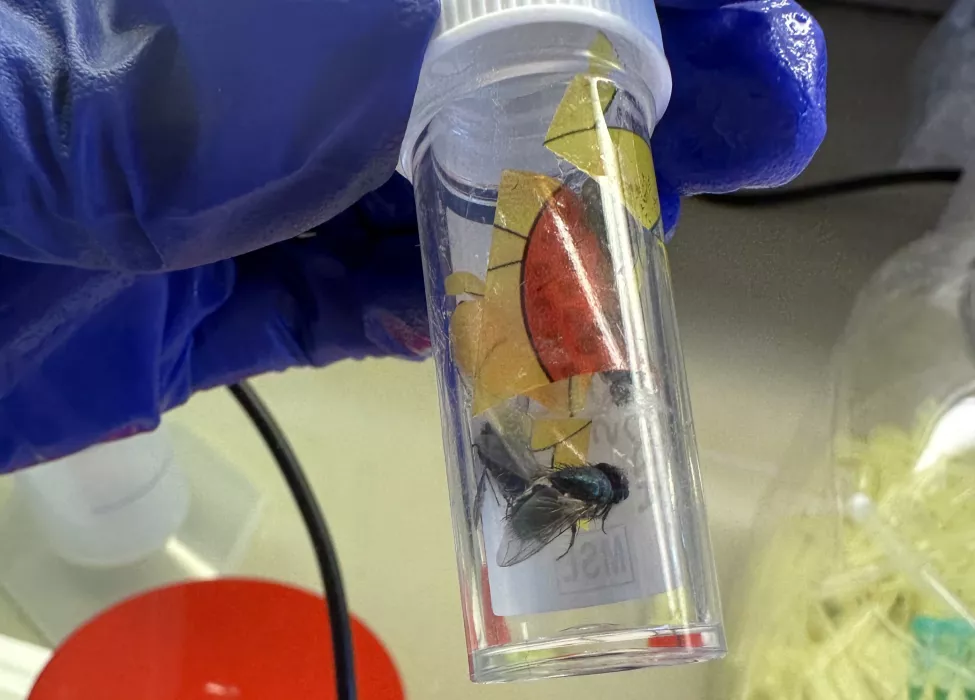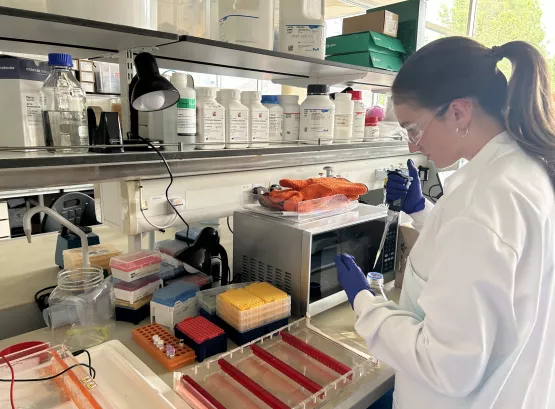What is AVIAR?
The AVIAR project is a multi-site and international surveillance project with an overarching aim to assess the prevalence of AMR bacteria carried by flies. There is evidence from publications largely from Africa, South America and Asia suggesting arthropods can act as mechanical vectors for medically important bacterial species, and they have been implicated in the transmission of AMR bacteria in multiple settings. Despite this data, flies in particular are often overlooked as a source of AMR, especially in low- and middle-income countries (LMICs) where limited resources are often used to tackle more obvious causes of AMR, such as hospital surface contamination.

The Arthropods as Vectors of Infection and Antimicrobial Resistance (AVIAR) study aims to evidence the role of arthropods as major contributors to the spread of infection and AMR. While misuse of antibiotics in human medicine and agriculture is a key contributor towards the global rise and spread of AMR, there is a whole ecosystem of factors at play that include these seemingly inconspicuous creatures.
We are also monitoring how this is impacted by climate change. Previous studies have suggested that rising temperatures may lead to increased infection rates. Temperature increases are also predicted to impact arthropods, with the current population of flies projected to increase, which will escalate disease transmission.
Building a global dataset
Our pilot research in a public hospital in Peshawar, northern Pakistan has shown that ants, spiders, flies, and cockroaches contribute to the transmission of drug-resistant infections in clinical settings. We are now building on that research to examine the role flies in particular play in spreading AMR on a global scale.
Our global dataset will:
- Determine the prevalence of AMR bacteria carried by flies
- Analyse AMR data in the context of antibiotic availability and usage in hospitals
- Generate a spatio-temporal database
- Model the prediction of numbers of AMR bacteria by flies in hospital settings
Current projects
AVIAR research began by establishing the “global” hospital study, which aims to provide a snapshot of the AMR prevalence carried by flies in hospital wards. There are a number of projects within this which aim to collect flies from diverse geographical regions to analyse the prevalence and diversity of AMR bacteria.
- Dphil Student Kate Cook is investigating the role of insects as carriers of wound-infecting bacteria in a clinical setting in Kano, Nigeria. This research will longitudinally assess the prevalence of wound infections, whilst collecting arthropods and hospital surfaces swabs to assess potential transmission links. This work is critical to understanding how infections are transmitted within hospital settings. We hope this will highlight the importance of infection prevention measures and drive interventions to reduce transmission of antimicrobial resistant bacteria in hospitals.
- Dphil Student Shonnette Premchand-Branker is investigating mechanisms of carbapenem resistance carried by bacteria on and within the flies with a particular focus on the Providencia genus. Antibiotic resistance genes are increasingly being detected in Providencia bacterial isolates cultured from flies within AVIAR research. Providencia species are natural members of the fly microbiome, however there is a sparsity of data linking Providencia, AMR and infection. This research utilises a combined approach to explore spatial data of samples, genomic characteristics of bacterial isolates, and transmissibility of bacteria carrying antibiotic resistance genes that are harboured by flies.
- Researchers Willames Martins and Claudia Orbegozo Rubio are isolating different types of phages against multidrug resistant bacterial clones from flies collected in different parts of the world. Once isolated and purified, these phages are fully characterised (by microscopy, microbiology, and genetic assays) creating a novel and curated bacteriophage library with the potential to be used for further applications such as phage therapy, development of phage-based products, and diagnostic assays.
Looking for collaborators in the global hospital study
We are currently looking for collaborators who can collect flies circulating in hospitals around the world. We are particularly interested in collecting flies from public and tertiary hospital settings. This collaboration would involve a low time commitment- we estimate that it would require around one hour or less per day for approximately one to two weeks to complete the collection of flies. Get in touch for more information.



